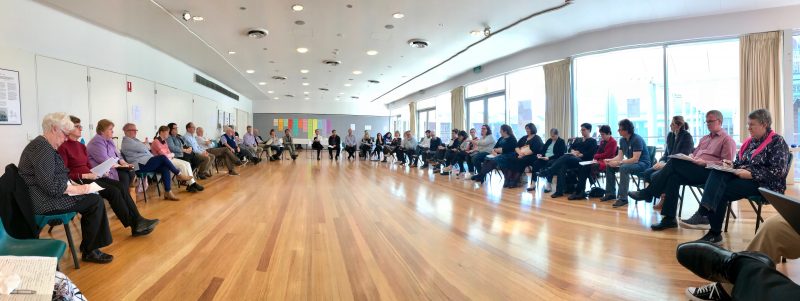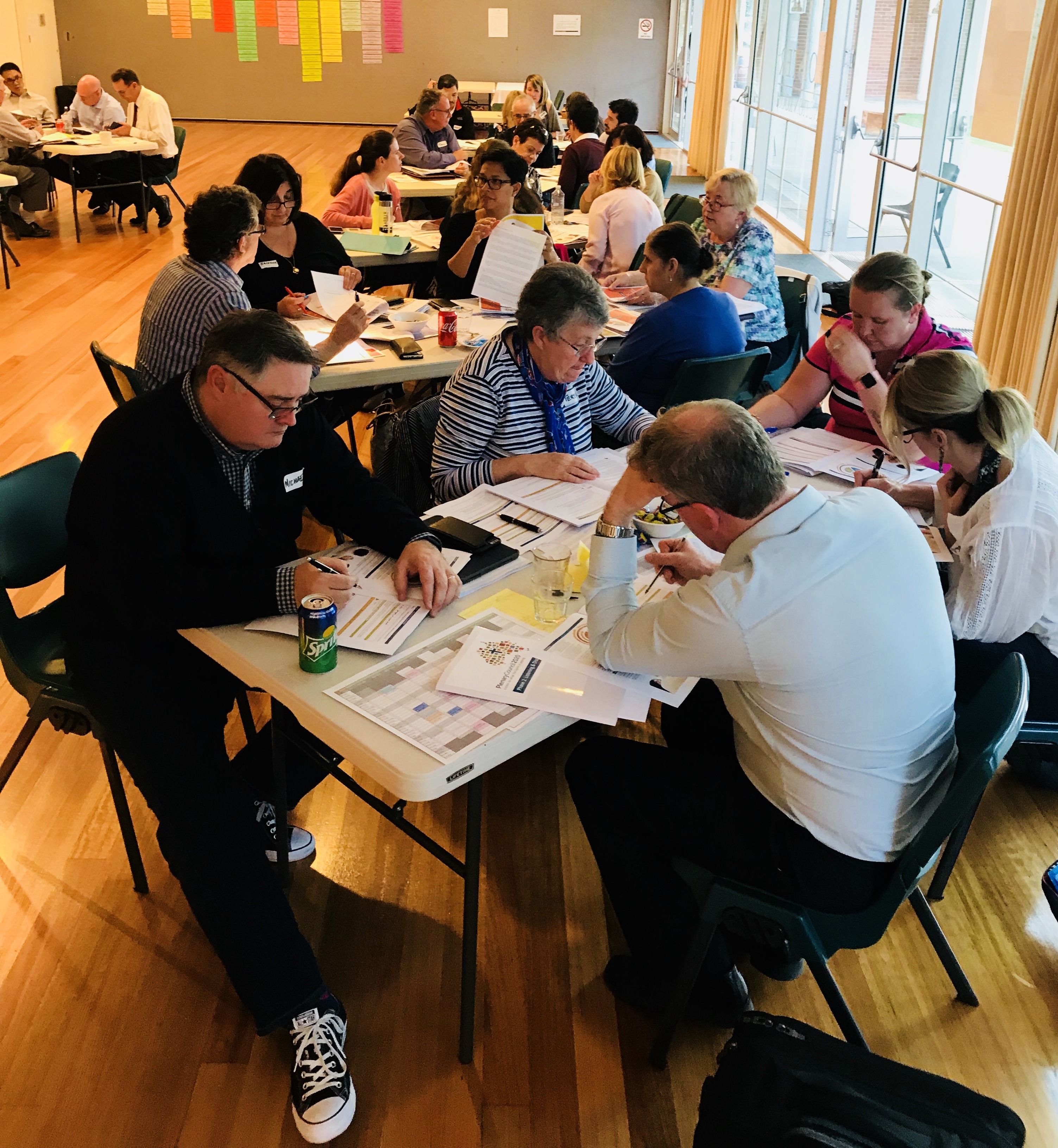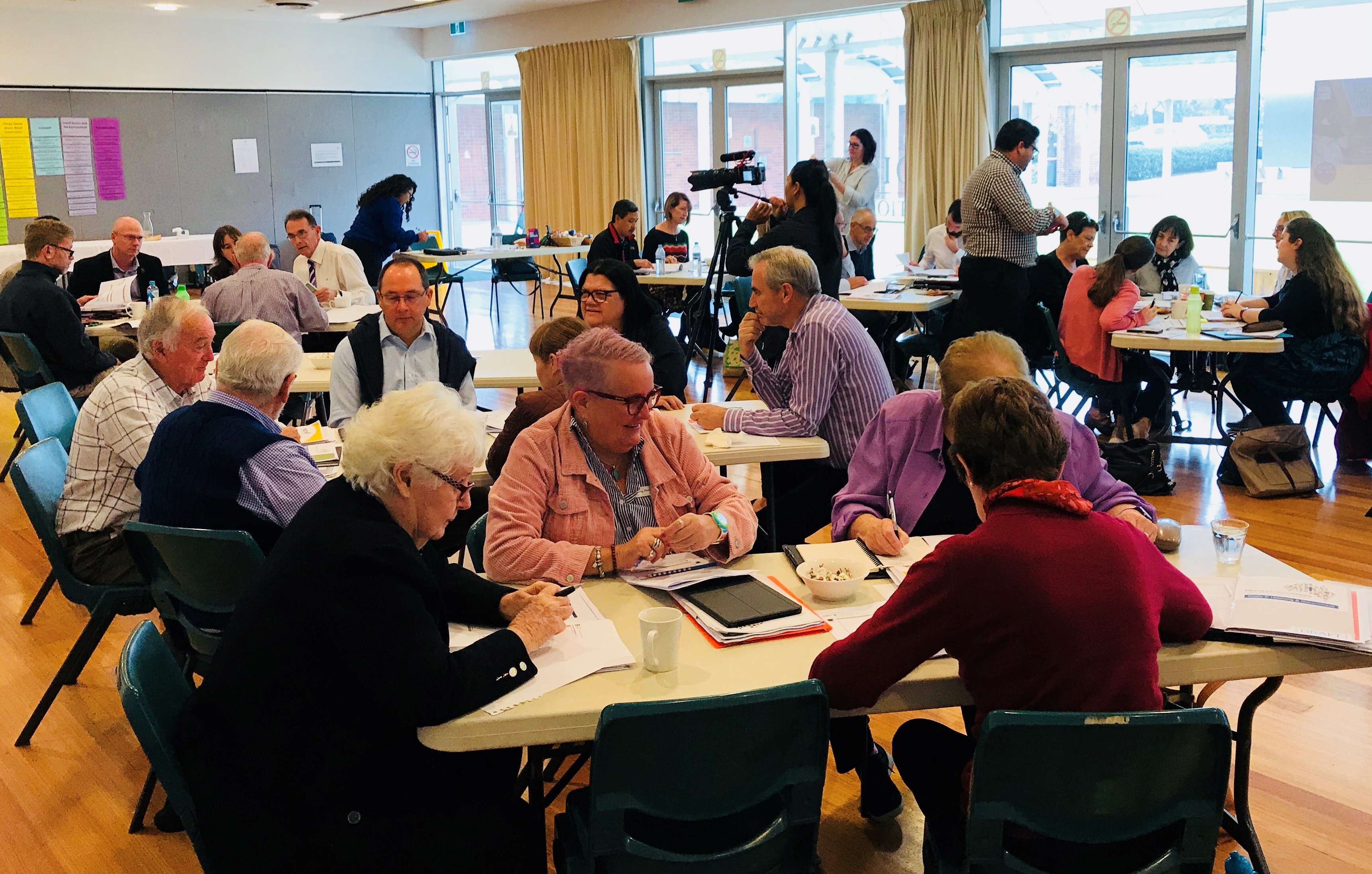Plenary Council 2020 – a path made by walking
Traveller, there is no path.
The path is made by walking.
Traveller, the path is your tracks
And nothing more.
Traveller, there is no path
The path is made by walking.
By walking you make a path
And turning, you look back
At a way you will never tread again…
Antonio Machado, Border of a Dream: Selected Poems https://www.goodreads.com/quotes/289625-xxix-traveler-there-is-no-path-the-path-is-made
In late May 2019, Parramatta was the site of meetings to discuss the next steps of the Plenary Council 2020. There is excitement and frustration at the enormity of the endeavour of progressing down a path that is made in the process of the journey. No part of the Catholic Church has ever held a Plenary Council like this. The agenda was not set when the Australian Bishops called the Plenary Council 2020. The agenda has come from the submission of all the people. While Church law requires certain office holders to attend, the Australian Bishops want an expanded number of lay and women delegates. The Australian Bishops hope is that a wide range of people will participate in the Plenary Council process – before, during and after the sessions. The Plenary Council 2020 organisers have the task of finding meaningful ways to facilitate this participation.
From Monday 20th to Wednesday 22nd the Plenary Council 2020 Executive Committee met. Initially they looked at the topics that the National Centre for Pastoral Research found in the 17,457 submissions from the Listening and Dialogue sessions 2018-2019. Then they wrestled with how to group these topics into themes.

 On Thursday 23rd and Friday 24th they were joined by about 50 local facilitators from all, but one, diocese from across Australia and by Lawrie Hallinan, representing AMPJP. This larger group drew on their practical experience of organising activities with and communicating with parishioners, schools, Catholic agencies and others. There were many insights and suggestions that will lead to further changes in the understanding and presentation of the topics and themes.
On Thursday 23rd and Friday 24th they were joined by about 50 local facilitators from all, but one, diocese from across Australia and by Lawrie Hallinan, representing AMPJP. This larger group drew on their practical experience of organising activities with and communicating with parishioners, schools, Catholic agencies and others. There were many insights and suggestions that will lead to further changes in the understanding and presentation of the topics and themes.

Lawrie Hallinan said that these two days were as much a time of prayer and discernment as an intellectual effort. It was a process that truly allowed us to hear what the Spirit was saying. At times we were delighted at surprise insights that seemed to bring everything together. There were also times when a person would raise a new perspective that would throw settled issues into flux and yet we could all see that this absolutely necessary. The two days were an experience of the discernment process that is the next phase of the Plenary Council 2020.
The next milestones in the 2019 journey will be:
 1/ Public launch on Pentecost – 09th June 2019 of:
1/ Public launch on Pentecost – 09th June 2019 of:
- The more than 87 topics that from the local Listening and Dialogue sessions 2018-2019;
- The national themes for discernment
2/ A call for applications to join a thematic working group Nominations open in mid-June 2019 for membership of the working groups to write the working papers for the first session of the Plenary Council 2020. At this stage, it is anticipated that nominations will close at the end of June 2019 with a decision by the end of July 2019. The details of discussion paper format and writing process are still being developed. The number of working group members, the role of members and the working group process are also still to be finalised. All of these details will be available at the time of the call for nominations. These working groups will have about eight months to discuss data, topics and personal stories available from the submissions from the Listening and Dialogue phase (2018-2019).
Looking at these milestones there is still much to clarify. Some might find the lack of certainty to be chaotic. We can take some consolation from the creation narrative (Gen: 1) that speaks of God creating from the “formless void” and “darkness”. Pope Francis has spoken of the need to not fashion our world in our likeness – rather to leave space for God to create something new:
It is true that this trust in the unseen (Holy Spirit) can cause us to feel disoriented: it is like being plunged into the deep and not knowing what we will find. I myself have frequently experienced this. Yet there is no greater freedom than that of allowing oneself to be guided by the Holy Spirit, renouncing the attempt to plan and control everything to the last detail, and instead letting him enlighten, guide and direct us, leading us wherever he wills. (Evangelli Guadium #280)